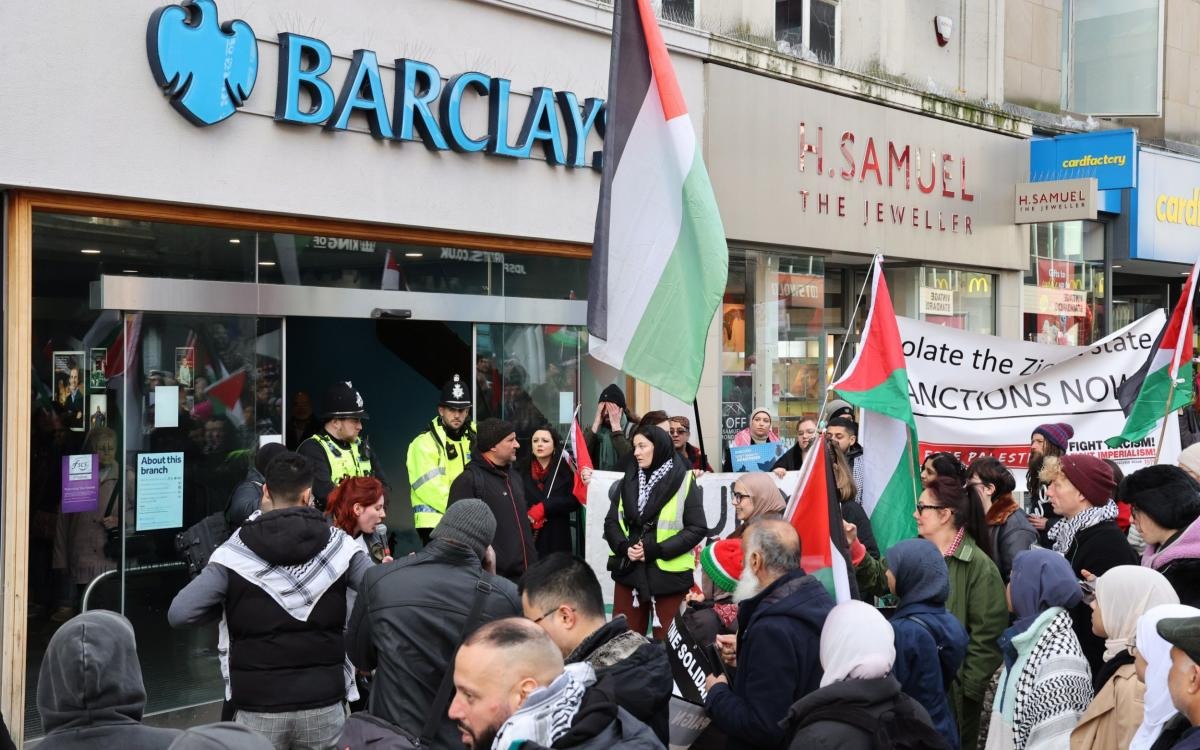Today marks another significant step in the ongoing campaign against Barclays’ involvement in financing Israel’s actions against Palestinians.
Over 1000 individuals have taken a stand by closing their accounts with the banking giant, adding to the momentum generated by the initial mass closure day organized by the Palestine Solidarity Campaign (PSC) in February 2024.
The decision to close accounts with Barclays stems from a collective outrage over the bank’s financial support for Israel’s assault on Palestinians. Campaigners point to Barclays’ substantial investments in companies involved in producing weapons and military technology used by Israel in its attacks on Gaza.
Protesters (Credits: GB News)
These investments, totaling over £1 billion in shares and £3 billion in loans and underwriting, are seen as complicity in Israel’s actions, which the International Court of Justice has deemed as potentially constituting genocide.
By targeting companies such as General Dynamics and Elbit Systems, which manufacture weapons and armaments utilized by the Israeli military, Barclays is seen as facilitating human rights abuses and perpetuating the cycle of violence in the region.
Activists argue that the bank’s financial support enables Israel’s continued oppression of Palestinians, exacerbating the already dire humanitarian situation in Gaza.
The timing of the mass account closure day on the UN Day for the Elimination of Racial Discrimination is significant, invoking the memory of the Sharpeville massacre in South Africa in 1960 and drawing parallels to the apartheid regime.
Thousands Pledge to Boycott Barclays (Credits: Hyphen Online)
During that period, Barclays faced widespread condemnation and boycotts for its complicity in supporting South African apartheid, eventually being compelled to withdraw from the country in 1986.
Campaigners are determined to replicate the success of past boycotts and force Barclays to end its complicity in Israel’s apartheid regime. Social media campaigns, pickets, and sit-ins will continue until the bank prioritizes human rights over profit.
Ben Jamal, Director of the PSC, emphasized the urgency of the situation, highlighting the devastating toll of Israel’s actions on Palestinian lives and calling on Barclays to cease its support for genocide and apartheid.
The mass closure of accounts represents a powerful form of grassroots activism, sending a clear message to Barclays and other financial institutions that profiting from human suffering will not be tolerated.
As pressure mounts, Barclays may find itself compelled to reassess its investment policies and align them with principles of justice, equality, and human rights.
